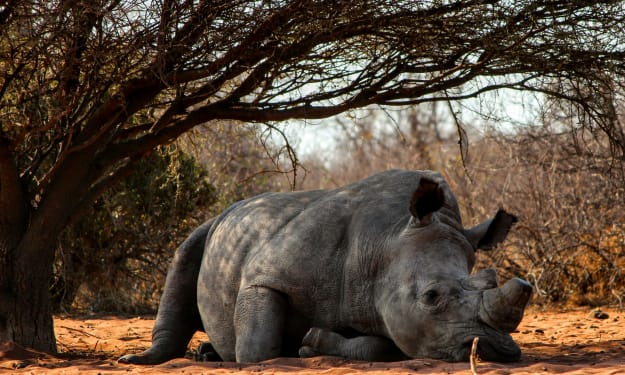What If We Killed Every Mosquito On Earth?
What would happen if mosquitoes went extinct? And could this new mosquito eradicate disease? Some brilliant scientists have made all of this possible.

Brazil's mosquito factory is about to release 5 billion tainted mosquitoes the nation over interestingly Is this the start of a science fiction story? film or quite possibly of the most brilliant piece of science I've gone over in a Long Time spoiler: it's the ladder we're using. Everyone despises mosquitoes, and rightly so. reason on top of being an unadulterated irritation with their humming and irritated nibbles they're really the deadliest creature to literally, they kill more people. than any other animal in particular through spreading sickness yet before we can comprehend and the rationale for scientists' need to make a greater amount of them we ought to inquire ourselves asked, "Couldn't we just?" obliterate them generally like would it truly be so terrible in the event that we killed each mosquito on Earth nature Diary really did an investigation into this very question and found that there wouldn't really be a huge repercussions if mosquitoes vanished tomorrow basically not so much for people and that being said not many species intensely depend on the mosquitoes that do, such as some birds and fish would almost certainly supplant them with a different thing and while some mosquitoes truly do go about as pollinators there's nothing people depend on them solely because, of course, there are roughly 3,200 species. of mosquito and just 200 of them chomp people so it appears to be unreasonable to kill them everything except due to the ones that really do chomp us around 247 million individuals are contaminated with malaria each year, in addition to a bunch of different illnesses like Deni and zika yet while obliterating mosquitoes may be a net positive for people one is it actually that attainable to do and two would be able We really know what will happen to the environment. from something of that extent in comes the plan to make more mosquitoes in a factory, which initially sounds crazy you understand it's not you see researchers have found a way to prevent disease transmission from mosquitoes without the need for killing them all because of a microbes called wakia has kind of been behind the scenes in mosquito science assuming that you like for the last 100 years however just as of late drawing in a great deal of consideration a portion of the work that we did various quite a while back currently showed that if you had W back in this particular mosquito that spreads germs to individuals like yellow fever chcken Gia Dy The viruses were unable to thrive in the mosquito if it turns its head back here. in them this was befuddling to the researchers from the beginning yet they understood that the microbes is logical out contending some other microbes like the Deni virus, so the presence of wakia infection can't multiply as expected also, at last can't spread to people also, in the event that you take a portion of these wakia tainted mosquitoes and set them free into the wild they'll wind up contaminating different mosquitoes with wakia if an a male with the infection mates with a non-infected female the eggs She lays won't bring forth if The male lacks it, while the female does. She will lay eggs, but they will all be contaminated with wakia and the equivalent occurs if, after a few days, both are infected Ages the quantity of wakia conveying mosquitoes increments quickly we've done You are aware of deployments in 14 nations. normally our delivery programs last anywhere between a few months and perhaps a half year and that gives the a chance for those mosquitoes to make small, untamed mosquitoes and then transmit W back here into that wild mosquito populace in particular Sanctum cases dropped fundamentally perhaps the earliest exhaustive examinations in Indonesia found the defensive viability of the intervention had been 77.1% that is what might be compared to being multiple times more averse to create the if you were currently in those areas, disease The results at some test sites were as low as 38% yet major for the decrease of an illness the lower results might be on the grounds that it takes longer in some networks relying upon their size and climate for wakia to spread to the whole mosquito populace anyway the the most recent abura results valley Colombia which were recently delivered actually saw a decline in November 2023 of 95 to 97 percent in D fever, making it to the lowest rate for the last two decades locale what makes this outcome much more significant is that the remainder of the Actually, America's had the second worst year since 1980 for Deni fever, so while a few pieces of Colombia were seeing record highs in this area of Denay, where changed mosquitoes were Released saw record lows this Colombia project started releasing mosquitoes with wakia infections in 2015 so to see a 95% decrease in Deni fever is really bewildering and presently the groups are attempting to sort out some way to make use of these altered mosquitoes as successfully as conceivable over significantly bigger areas Deni is a significant issue in Brazil. as zika has then we are cooperating to create an office that will deliver up to 100 million mosquitoes every week uh so that we can deploy them in Brazil You now cover multiple Brazilian cities. may be wondering whether humans these are infected with the wakia mosquitoes like is there a bigger gamble because we have so much of it in climate so around half, everything being equal, naturally contain wakum, I can assure you. that you and everyone else who hears this will have been nibbled by what we call the normal housee mosquito that is the mosquito that is simply IND descript Earthy colored mosquito that will whiz around your ears and that mosquito normally has vakia in it vakia was an issue we'd realize about it there's not a connection between here and any adverse outcomes that might At the moment, anyone can locate the wh is assessing this innovation for use Obviously, in other nations the researchers included see this as a supplemental measure that was not intended to forestall or put Deni antibodies down in the areas in which there is a high risk but In the long run, it might save countless individuals from being contaminated by Deni and around 100 It's kept a million people from getting sick. all a wonderful reminder of how Moreover, an unexpected approach can occasionally literally alter hundreds of people's lives of millions of individuals for the better I need to send a major thanks to Dr O'Neal for assisting me with separating this inconceivable science thanks such a huge amount for watching on the off chance that you preferred it give it a approval and buy in for more science.
About the Creator
Ibok Gerard
Ibok Gerard is a wordsmith, dreamer, and adventurer. His writing explores the intersection of mystery and reality
Enjoyed the story? Support the Creator.
Subscribe for free to receive all their stories in your feed. You could also pledge your support or give them a one-off tip, letting them know you appreciate their work.






Comments
There are no comments for this story
Be the first to respond and start the conversation.